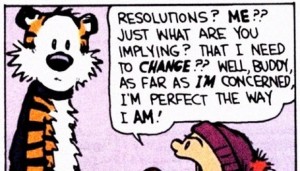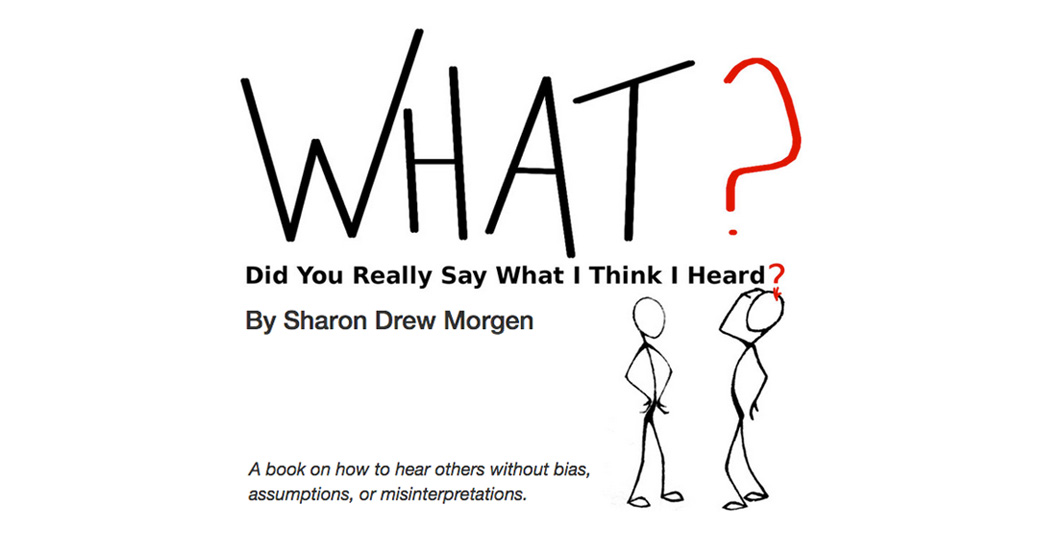Why New Year’s Resolutions Fail
 Every year, with the best will in the world, we make New Year’s resolutions to make some sort of change, like exercising more or eating healthier. We start off with great gusto and determination, yet by February we begin making excuses to avoid the gym, or convince ourselves pizza would be great for dinner. What happens? We’re approaching change in the wrong way. But we can easily make it right.
Every year, with the best will in the world, we make New Year’s resolutions to make some sort of change, like exercising more or eating healthier. We start off with great gusto and determination, yet by February we begin making excuses to avoid the gym, or convince ourselves pizza would be great for dinner. What happens? We’re approaching change in the wrong way. But we can easily make it right.
BELIEFS DEFINE BEHAVIORS
Here’s the problem. Within each of us, within each person, family, team, or group, are long-held rules and experiences, values and history, that make us who we are. This system, as I call it, is unconsciously created and maintained by our personal belief structure and determines how we respond to, and hear, others; how we choose our friends and jobs; our politics and religion.
This belief structure represents who we are and is made operational through our behaviors. In other words, our behaviors are primarily beliefs in action and we rarely behave, communicate, or decide in ways that offend our beliefs: we won’t buy cigarettes if we believe smoking is unhealthy.
Over time we create unconscious habitual behaviors that allow us to get through a day in a way that’s comfortable and acceptable to our system. When we attempt to change a behavior without first getting buy-in from the beliefs that created that behavior, we are in fact pushing a foreign element into our system, endangering our habits and status quo and creating resistance. This is why seemingly good decisions can’t be executed, why people seem to change their minds, and why implementations fail: to maintain our equilibrium, our status quo, our unconscious sabotages the change.
WHY NEW YEAR’S RESOLUTIONS FAIL
New Year’s resolutions seek behavior change with no accompanying belief change, potentially disrupting our equilibrium and causing resistance over the long term, regardless of the efficacy of the requested change. In other words, when we determine to stop eating potato chips, or go to the gym, or start meditating, we are forcing our status quo to make a change it has not agreed to. And the results aren’t pretty: implementations are sabotaged, we don’t meditate/work out/eat healthy for more than a few weeks, we don’t buy something we need.
Here’s a rule to take with you over this New Year: change cannot happen without buy-in from our beliefs or we face resistance from our status quo that is avoiding disruption. It’s never so simple as just doing one thing differently. And regardless of the need, or the efficacy of the solution, until there is agreement to change, any shifts in behaviors will be short-lived.
I suggest that it’s imperative to begin with a belief change, then discover the behavior that matches it and note what else must shift along the way. When coaching clients, I help them understand their baseline beliefs and get internal – unconscious – agreement from the system to add acceptable behaviors that will match those beliefs.
Here’s a personal example: As a healthy person (belief) one of my modalities toward health is exercise. But I hate hate hate the gym (Did I say I hate the gym?). Thankfully I found several classes and a weights regime that I can tolerate. So I get 10 hours a week of exercise and remain congruent with my beliefs: I am a fit, healthy person. But on a behavioral level I hate it.
I’m aware that there are many models that show how to work with resistance, or behavior change through repetition. Yet it’s possible to avoid resistance altogether by first enabling agreement from our beliefs and only then adding behaviors – working from within first, and avoiding ‘push’ and the corresponding resistance. Then we can maintain our New Year’s resolutions.
____________
Sharon Drew Morgen is the NYTimes Bestselling author of Selling with Integrity, and the Amazon bestseller What? Did you really say what I think I heard? She is the developer of Buying Facilitation®, a change management/decision facilitation model that gives sellers additional tools to first help buyers manage their Pre-Sales systemic change issues. Sharon Drew has trained Buying Facilitation® for 30+ years to sales teams in many global corporations She teaches listening programs to corporations seeking tools to hear each other and clients without bias or misinterpretation. Her award winning blog is www.sharondrewmorgen.com. She can be reached for sales coaching, keynotes, training, and consulting at sharondrew@sharondrewmorgen.
Sharon Drew Morgen January 4th, 2017
Posted In: News

